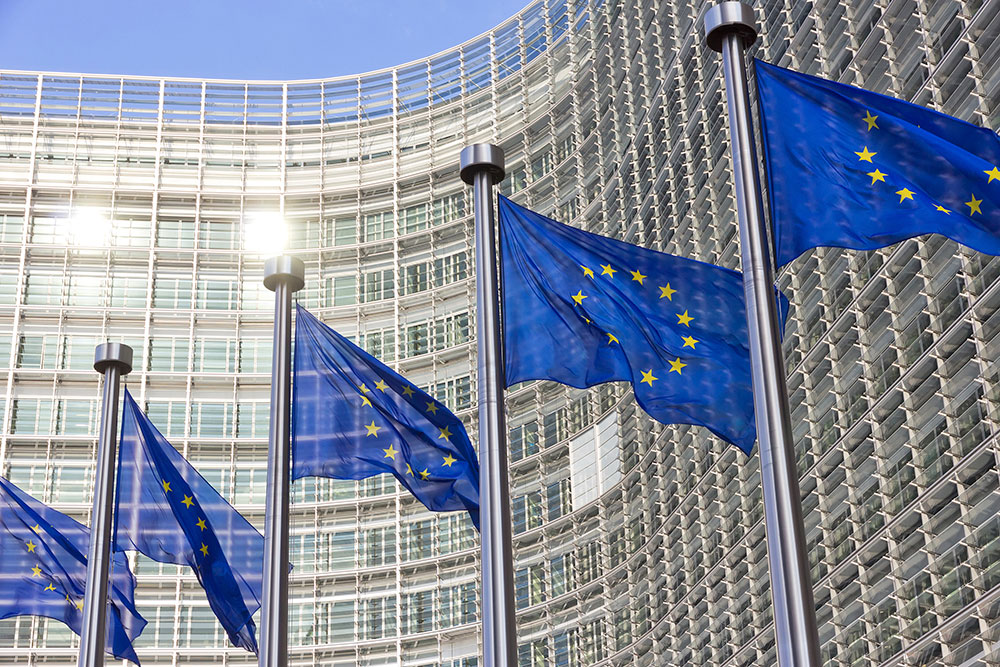Managers of six national Public Service Media from the Western Balkans (RTSH, BHRT, RTK, MRT, RTCG, RTS) signed today in Tirana a Memorandum of understanding that paves the way for their cooperation on a European Union (EU) funded project of assistance worth €1.5 million.
The project of Technical Assistance to Public Service Media in the Western Balkans will run for the next two years with the aim of facilitating transformation of the Public Service Media from state media into a genuine service for citizens, which represents one of the EU’s priorities in the Western Balkans – as it was concluded at the two-day kick-off conference that ended today in Tirana.
Head of the EU Delegation to Albania, Romana Vlahutin, in her closing remarks reminded of the importance of PSMs independence. “The defining feature of public broadcasting is its inclusiveness and independence: it is funded by the public and therefore it should be made for the public, serve the public and be controlled by the public. No other interest but the public interest should be the guiding principle of the work of every public broadcaster”, she said.
As it was presented at the conference the Project will deal with three core objectives: 1) promotion of European standards and best practices across the Western Balkans as a common frame of reference for independent and professional media, both with regard to models for funding, election and functioning of governing bodies of Public Service Media; 2) generating synergies between Public Service Media and regional exchanges on policies and practices for a new phase in the media reform process, including integrated newsrooms, editorial guidelines, and long-term strategies; and 3) expanding and supporting cooperation on investigative journalism, mechanisms for coproduction on selected topics and regional exchange of digitized archive materials.
“For all of us I think the educational programs from our different public broadcasters are part of our childhood memories. I still remember very well times when families and neighbours used to get together in front of TV to share important moments, be it politics, sports, cultural events. A huge advantage of the public broadcasters in the region is that they have been part of every household for decades and have this proximity to the viewer from the capital to the most remote villages that have a TV signal”, Vlahutin said.
The conference gathered around 60 participants including representatives of international organisations, PSM directors and senior officials, political decisionmakers and representatives of NGOs and broadcasting regulatory bodies from Albania, Bosnia and Herzegovina, Kosovo*[1], FYR Macedonia, Montenegro and Serbia.
Reminding of the negative assessments regarding PSM in the Western Balkans and Turkey in the European Commission’s latest ELARG package, Programme Manager at European Commission, Karl Giacinti, stressed that the EU sees reforms in PSM as an important part of the overall democratization process toward EU accession and beyond.
“The reforms have been priorities for years and the EC is impatient to see improvements. We want to see reforms moving ahead visibly. For all these reasons, the EC decided to launch this project and will further invest in this sector to support the production of independent qualitative contents. Additional regional funds managed by Brussels and national funds from the EU Delegations will be available for this and similar initiatives”, announced Giacinti.
The project has been awarded and will be implemented by the International Federation of Journalists (IFJ) together with the European Broadcasting Union (EBU), the European Federation of Journalists (EFJ), the Austrian Public Broadcaster (ORF), the Balkan Investigative Reporting Network (BIRN) and the Eurovision News Exchange for South-East Europe (ERNO).
One of the key speakers at the first day of the conference was General Director of EBU, Mr. Noel Curran, whose key message was that of cooperation. “It is only by working together that we can affect real change. Together with our partners and the many PSM organisations gathered in this room we can make a positive impact on media and, by association, democracy throughout the region”, he said.
“We are stronger together. As a community it is our role to help wider society understand the value of strong PSM; to nurture it; protect it and help it grow and thrive. With all your help I believe we are well on that path. The Assistance to PSM project in the Western Balkans is a tangible example of what we can do together”, he concluded.
Besides PSMs as main beneficiaries, the Project will include cooperation with national parliaments, broadcasting regulatory authorities and relevant media NGO.
[1] All references to Kosovo, whether the territory, institutions or population, in this text shall be understood in full compliance with the United Nation’s Security Council Resolution 1244, and without prejudice to the status of Kosovo




